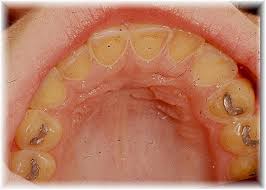
A few months ago I wrote a post about anorexia. Since then I've been gathering information on bulimia and have finally decided to sit down and share what I've found.
Bulimia is an eating disorder in which the person eats large quantity of food in a short period of time (binges) and then rids themselves of the food to avoid weight gain (purges). They may purge by vomiting or by using laxatives to make the food leave their system faster so less of it gets absorbed. People with bulimia may also abuse diet pills and/or exercise compulsively in order to avoid weight gain.
Friends and family can look for certain signs but not all can be detected even by those closest to the bulimic sufferer.
Signs and symptoms:
- Secret binge eating (many times with large amounts of carbohydrates)
- Excessive exercising
- Over-eating to the point of having stomach pains
- Excusing self during meals
- Suffering from guilt and shame at over-eating
- Fluctuating weight
- Constipation, diarrhea, nausea, gas, abdominal pain

- Dehydration
- Lack of/or irregular menstrual cycles in women
- Tooth damage from vomiting
- Bad breath
- Depression and/or self mutilation
- Over-eats with no weight gain
- Hides food or won't eat in front of others
- Frequently discusses their body image and dieting
- Swollen cheeks or teeth marks on hands from inducing vomiting
The causes of bulimia are similar to those of anorexia. It's most common in teenage girls, though boys can be affected as well. There may be a genetic link. It's more likely to occur in families with high expectations for their children. Many have low self esteem, are unable to control impulsive behaviors and have the inability to express emotions. Some are sexually abused, have OCD, or even substance abuse problems. Culture and the media are sometimes blamed for contributing to people becoming bulimic. This is especially common among athletes and dancers. Other causes can be having obese family members – a fear of becoming obese themselves, anxiety disorders, high stress-home, school, job, failed relationship, or the death of a loved one. 
Long Term Effects
As mentioned in Signs and Symptoms, the acid from vomiting can cause tooth decay and gum disease. Bones can become thinner and brittle from purging. Kidneys can become damaged, and heart problems can develop as well. What many do not realize is that bulimia can also result in death.
Statistics
Affects 1-3% of US adolescents 5-15% are male (mainly wrestlers and gay males) In a study, 70% of 6th grade girls said they started to worry about their weight between ages 9 and 11 Becoming more common among elderly women 64% are near normal weight range Cases possibly tripled between 1988 and 1993 (no clear facts) Children as young as six have developed bulimia More than 1 in 3 normal dieters progress to severe dieting. Frequent dieters are eighteen times more likely to develop an eating disorder The average model is 5'9"-6' and weigh between 110-118 pounds. The average American woman is 5'4" and weighs 142 pounds 44% of middle school girls who frequently read articles about dieting are twice as likely to develop an eating disorder Eating disorders are 100% curable if sufferers seek help in time 150,000 women die every year from dieting or related diet related causes
http://www.bulimiahelp.org/book/bulimia-overview/bulimia-statistics
Treatment 
Some forms of treatment are psycho-therapy, family and individual counseling, and sometimes prescriptions for anti-depressants. Psychiatrists must help bulimic sufferers address all aspects of their life in order to conquer the disease. Digging down deep to find the root of the problem can be very difficult but is necessary to begin the road to recovery.
If you or someone you know suffers from bulimia, please seek professional help. It could mean the difference between life and death.
Bulimia Treatment Center











Bulimia is just one of the various eating disorders that people continue to suffer from. Finding information and ways to receive help and/or treatment for your eating disorder isn't always easy. EatingDisorder.com is a great informational site that discusses the different types of eating disorders, their symptoms and causes, along with different treatment options that are available.
ReplyDeleteTo see what the site is all about you can visit www.eatingdisorder.com.
It is always helpful to choose an eating disorder treatment center that does not only address the physical need of individuals undergoing anorexia bulimia treatment, but one that also provides solutions to underlying issues that might be a factor in the development of any of the eating disorders.
ReplyDelete